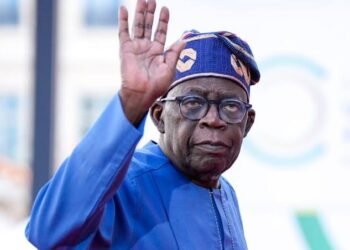Independence: Nigeria is Too Rich to Be Poor
Nigeria, often referred to as the “Giant of Africa,” is a country blessed with abundant natural resources and a vibrant population. Yet, despite its wealth, Nigeria grapples with high levels of poverty. This paradox of being rich in resources but poor in living standards is a critical issue that needs addressing. So, why is Nigeria, with all its potential, still struggling with poverty?
Historical Context
Nigeria gained independence from British colonial rule on October 1, 1960. The early years of independence were filled with hope and promise, as the country was seen as a potential economic powerhouse in Africa. However, political instability and civil unrest soon overshadowed these prospects, setting the stage for the economic challenges that followed.
Natural Resources
Nigeria is endowed with a wealth of natural resources. The most significant of these is oil, which has been the backbone of the country’s economy for decades. Nigeria is one of the largest oil producers in Africa, and its oil and gas sector accounts for a significant portion of its GDP and government revenue. Besides oil, Nigeria has vast agricultural potential, with fertile land suitable for various crops, including cocoa, palm oil, and rubber.
Economic Growth vs. Poverty
Despite impressive GDP growth rates over the years, the benefits of economic growth have not been evenly distributed among the population. While the economy has expanded, poverty levels remain alarmingly high. This disparity highlights the need for inclusive growth that benefits all Nigerians, not just a select few.
Corruption and Governance
Corruption is one of the most significant barriers to Nigeria’s economic development. It has led to the mismanagement of resources and wealth, preventing the equitable distribution of the country’s riches. Governance challenges, including weak institutions and lack of transparency, have further exacerbated the situation, making it difficult to implement effective poverty reduction strategies.
Infrastructure Development
Nigeria’s infrastructure is in dire need of improvement. Poor roads, unreliable electricity, and inadequate water supply hinder economic activities and reduce the quality of life for many Nigerians. Investing in infrastructure development is crucial for boosting economic growth and improving living standards.
Education and Human Capital
Education is a key driver of economic growth, yet Nigeria’s education system faces numerous challenges. Many children are out of school, and the quality of education is often subpar. Improving access to quality education is essential for developing the human capital needed to drive economic development.
Healthcare System
Nigeria’s healthcare system is another area that requires significant attention. The country faces numerous health challenges, including high maternal and infant mortality rates and the prevalence of infectious diseases. Strengthening the healthcare system is vital for improving the overall well-being of the population and supporting economic growth.
Entrepreneurship and Innovation
Entrepreneurship and innovation are critical for economic development. Nigeria has a vibrant entrepreneurial ecosystem, with many success stories of individuals and businesses making significant impacts. However, entrepreneurs often face challenges such as lack of access to finance, inadequate infrastructure, and regulatory hurdles. Supporting entrepreneurship can drive economic growth and create jobs.
Foreign Investment
Foreign investment is crucial for economic development, yet Nigeria struggles to attract and retain investors. Factors such as political instability, corruption, and inadequate infrastructure deter foreign investment. Addressing these barriers is essential for creating a conducive environment for investment and economic growth.
Social Inequality
Social inequality is a significant issue in Nigeria, with a wide gap between the rich and the poor. This inequality affects economic development by limiting opportunities for a large portion of the population. Reducing social inequality through inclusive policies and programs is essential for sustainable economic growth.
Policy Recommendations
To address the paradox of wealth and poverty in Nigeria, several policy recommendations can be made:
- Strengthening Governance and Transparency: Implementing measures to reduce corruption and improve governance is crucial for ensuring that resources are managed effectively and equitably.
- Investing in Infrastructure: Improving infrastructure, such as roads, electricity, and water supply, is essential for supporting economic activities and improving living standards.
- Enhancing Education and Healthcare: Investing in education and healthcare is vital for developing human capital and improving the overall well-being of the population.
- Supporting Entrepreneurship: Providing support for entrepreneurs, including access to finance and a conducive regulatory environment, can drive economic growth and job creation.
- Promoting Inclusive Growth: Implementing policies that promote inclusive growth and reduce social inequality is essential for ensuring that all Nigerians benefit from economic development.
Case Studies
Several successful poverty reduction programs can serve as examples for Nigeria:
- Conditional Cash Transfer Programs: These programs provide financial assistance to low-income families, conditional on certain behaviors such as sending children to school or attending health check-ups.
- Agricultural Development Programs: Initiatives that support smallholder farmers with access to finance, training, and markets can boost agricultural productivity and reduce poverty.
- Microfinance Programs: Providing small loans to entrepreneurs can help them start or expand businesses, creating jobs and reducing poverty.
Future Prospects
Despite the challenges, Nigeria has significant potential for economic growth. With the right policies and investments, the country can harness its resources and human capital to achieve sustainable development. A vision for a prosperous Nigeria includes a diversified economy, improved infrastructure, and a high standard of living for all citizens.









![Portable Orders Assault On Car Dealer Over Delayed Vehicle Delivery [VIDEO]](https://accesspost.ng/wp-content/uploads/2024/09/Portable-120x86.jpg)


